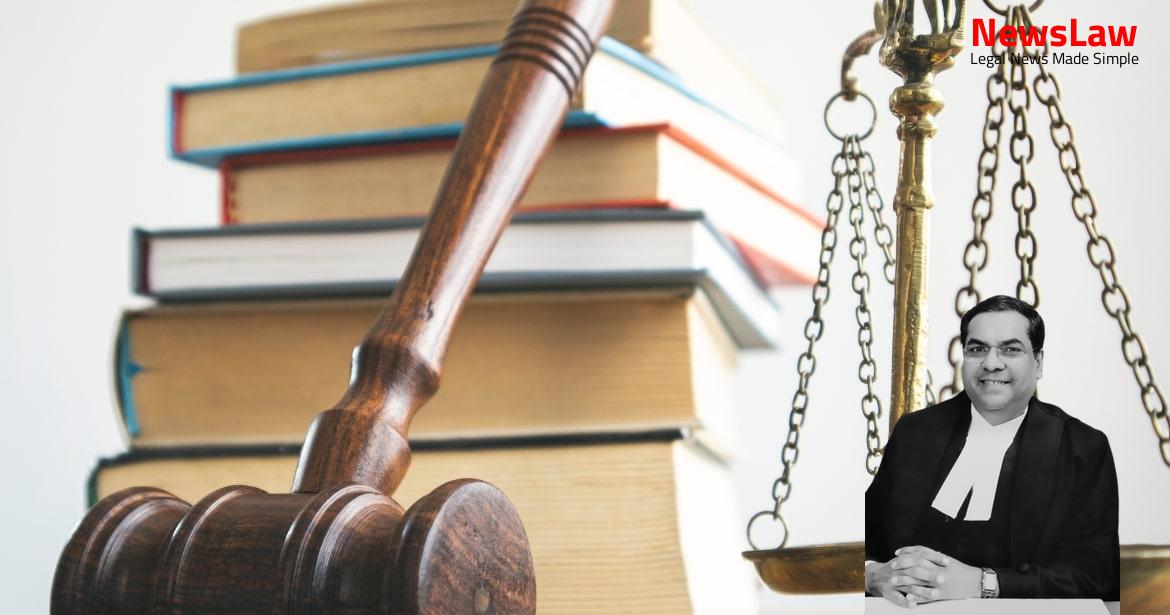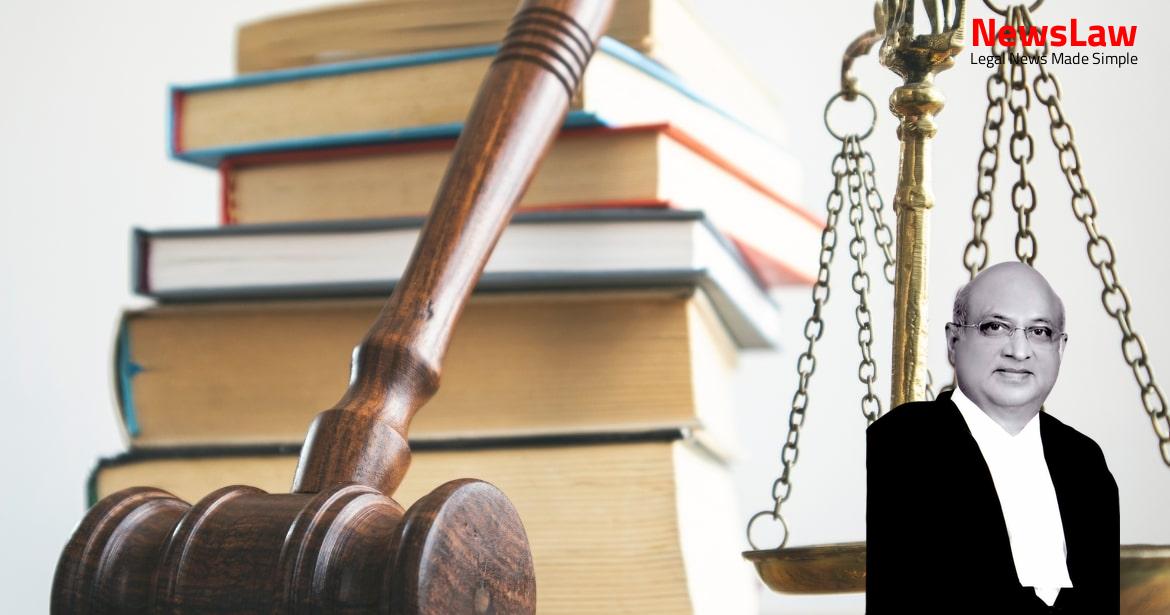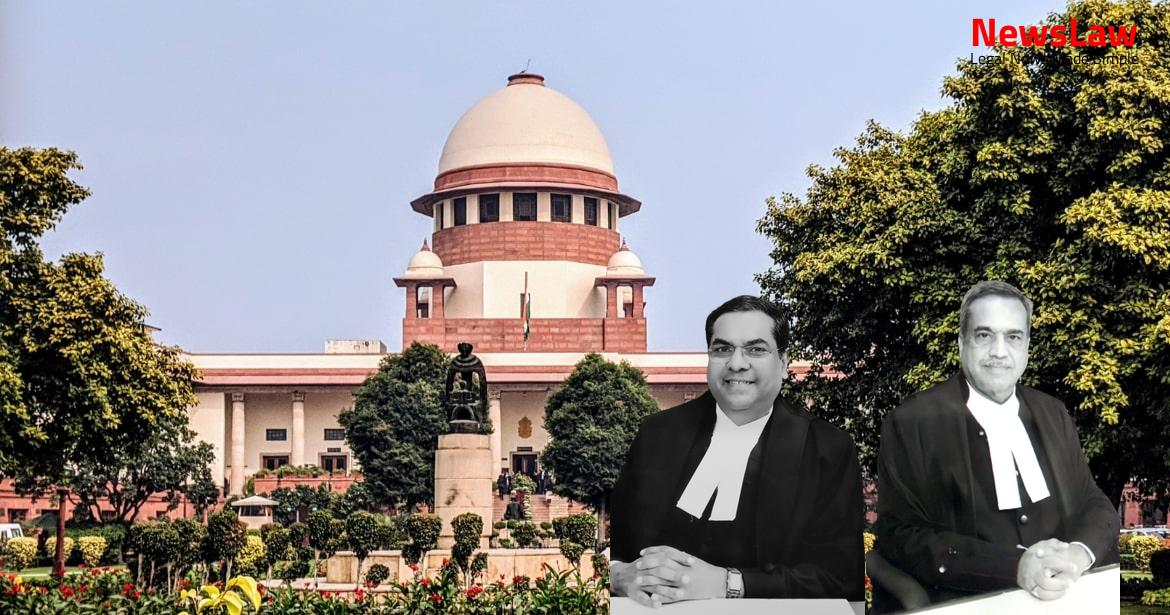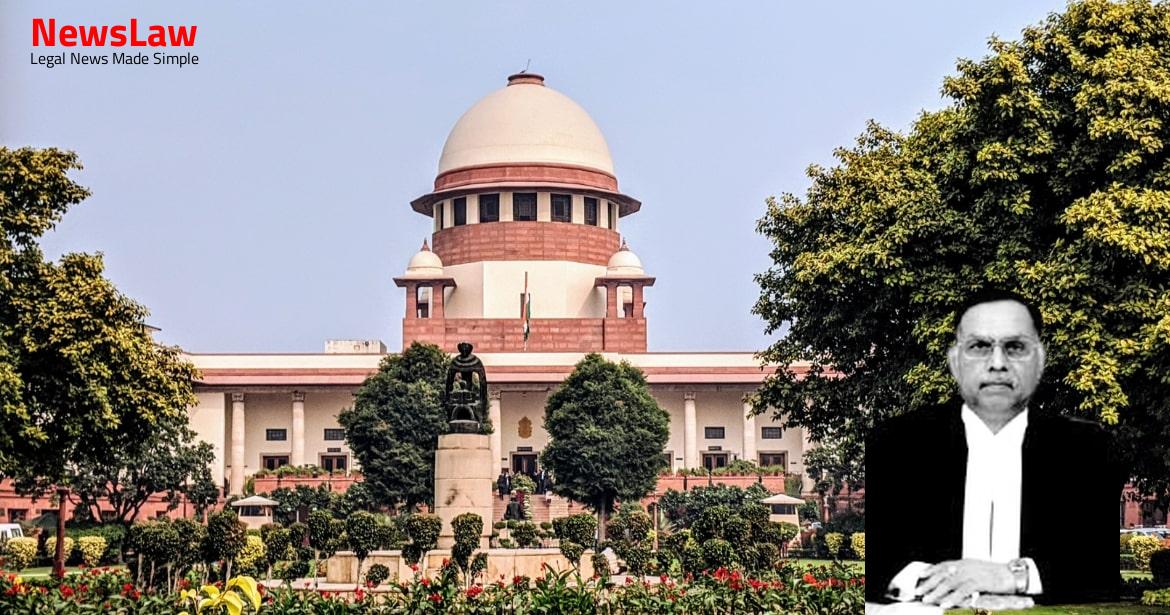Delve into a comprehensive legal analysis where the court examines the application of customs duty on non-excisable goods sold in the Domestic Tariff Area by an Export Oriented Unit. The judgment scrutinizes the statutory provisions and notifications surrounding duty-free imports for EOUs, highlighting the implications for units involved in DTA sales. Stay tuned to understand the intricacies of the court’s legal interpretation in this complex case.
Facts
- The appellant, a 100% Export Oriented Unit, is involved in the production of cut flowers and flower buds.
- The appellant’s products are suitable for bouquets and ornamental purposes.
- The Customs, Excise & Service Tax Appellate Tribunal confirmed the customs duty levied on the sale of cut flowers within the Domestic Tariff Area.
- The appellant’s appeal challenges Final Order No. C/203/08 dated 17.7.2008 passed by the Tribunal.
Also Read: Analysis of Legal Issues in Property Dispute Case
Issue
- Customs duty charged on non-excisable goods from an EOU in India sold in the DTA
- Amendment in Notification No 56/01-Cus dated 18.05.2001 affecting duty determination on inputs
Also Read: Land Acquisition Notification Process: Legal Analysis
Arguments
- Appellant argues that no excise duty can be levied on non-excisable goods like cut flowers sold in DTA as per Paragraph 3 of the exemption notification.
- Customs duty is leviable on imported inputs in case of non-excisable goods.
- Appellant relies on CESTAT and Central Excise and Gold (Control) Appellate Tribunal decisions to support their argument.
- Appellant claims that the amendment notification is clarificatory and should apply retrospectively.
- Customs duty cannot be levied on home-grown cut flowers, hence the demand of customs duty is invalid.
- Appellant cites Circular No 31/2001-Cus which highlights the disadvantage faced by floriculture EOUs due to customs duty on inputs.
- Amendment notification was issued to harmonize central excise and customs notifications.
- Appellant relies on the Constitution Bench decision and another Supreme Court decision to argue for retrospective effect and clarification of legislative intent.
- Respondent argues that the customs duty was correctly levied on the DTA sales made, which were in breach of the EXIM policy.
- Respondent claims that the appellant had no permission to clear goods in DTA from the Development Commissioner.
- Respondent points out that the amendment is a substantive change seen in the CBEC Circular, which speaks of ‘carrying out’ the amendment.
- Respondent makes reference to a court decision stating that a remedial provision cannot be construed as clarificatory or declaratory and must be applied prospectively.
Also Read: Classification of Creditor Claims in Insolvency Case
Analysis
- The judgement discusses the applicability of Section 28 of the Customs Act in relation to the production and sale of cut-flowers by an EOU.
- The appellant, an EOU, made DTA sales of cut-flowers without obtaining approval from the Development Commissioner and not maintaining the requisite net foreign exchange earnings.
- The EOU was found to have contravened provisions of the Export & Import Policy and Notification No. 126/94-CUS by making DTA sales without permission.
- The demand for customs duty on the imported inputs used in the production of the cut-flowers was justified, as per the judgment.
- The amendment to the notification regarding levy of customs duty on non-excisable goods was found to have prospective effect only and cannot be applied retrospectively.
- The analysis also includes the interpretation of various statutory provisions and notifications governing duty-free import for EOUs and the implications for EOU units selling goods in the DTA.
- Declaratory statutes are usually retrospective and contain a Preamble and the words ‘declared’ and ‘enacted.’
- Exemption clauses must be strictly construed, with any ambiguity benefiting the State.
- Mandatory conditions of exemption notifications must be obeyed precisely, but some leniency may be shown for directory requirements.
- A person seeking exemption from tax liability must clearly prove eligibility, with any doubt benefiting the State.
- Declaratory Acts are passed to remove doubts about common law or statutes’ meanings.
- Legislation granting benefits without corresponding detriments must be interpreted based on the clear language used.
- A person claiming exemption or concession must prove entitlement to it.
- Goods produced in an Export Oriented Unit (EOU) cannot be treated as imported goods subject to customs duty.
- Declaratory Acts aim to correct judicial errors regarding common law or statutory interpretations.
- Amendments to laws are considered remedial rather than clarificatory if they seek to take away previously accrued rights and liabilities.
- The ground finds support in the decision of a larger bench of the CEGAT in the case of Vikram Ispat.
- The appellant relies upon this decision.
- Levy and collection of excise duty on excisable goods produced or manufactured in India as per rates in First Schedule of Central Excise Tariff Act, 1985
- Special duty of excise to be levied on excisable goods specified in Second Schedule of Central Excise Tariff Act, 1985
- Special duty of excise to be in addition to the duty of excise specified in the First Schedule
- Provision for duties of excise on goods produced in free trade zone or by a hundred per cent export-oriented undertaking and sold in India
- Burden of proving mala fide conduct is on the revenue, and specific averments must be in the show cause notice.
- Appellant issued show cause notice for suppressing DTA sales of cut flowers to evade duty.
- Failure to seek prior approval from Development Commissioner for duty on DTA sales raises suspicion of ‘wilful’ suppression.
- Appellant’s claim of not using imported inputs contradicted by importing greenhouse equipment and raw materials.
- Burden of proving otherwise rested on the appellant, which they failed to do.
- Authorities rightly invoked Section 28 of the 1962 Act for levying customs duty.
- CESTAT upheld the levy of customs duty.
- Appeal is dismissed with no costs.
- Pending applications, if any, disposed of.
Case Title: M/S.L.R.BROTHERS,INDO FLORA LTD. THROUGH ITS DIRECTOR Vs. COMISSIONER OF CENTRAL EXCISE (2020 INSC 525)
Case Number: C.A. No.-007157-007157 / 2008



